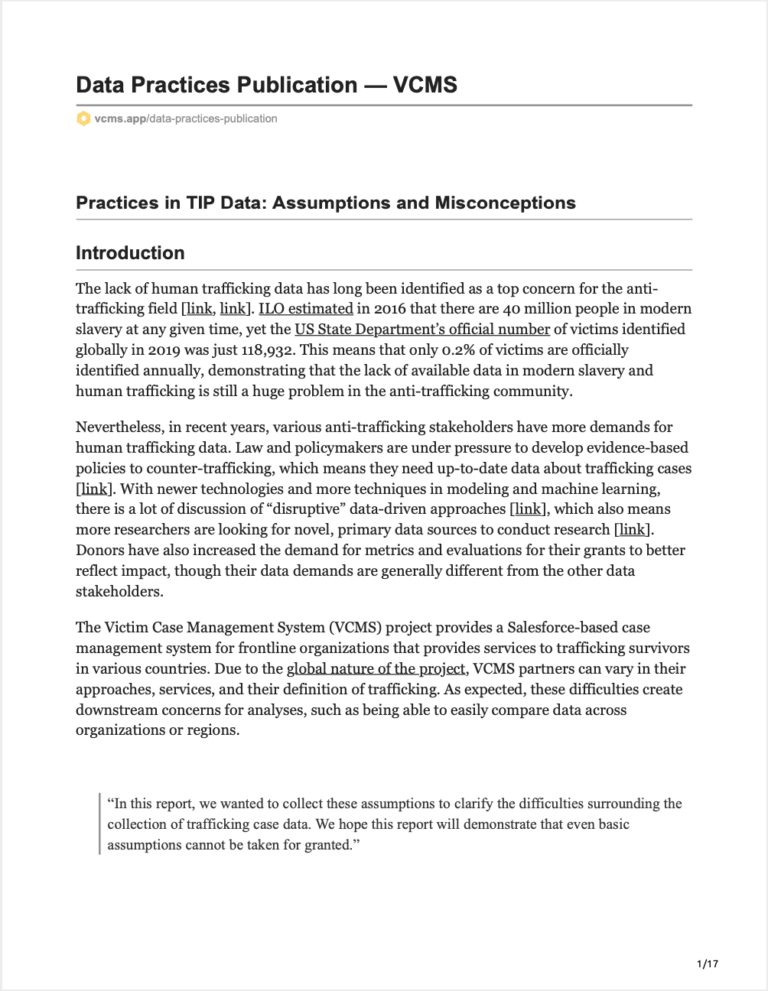The Victim Case Management System (VCMS) project provides a Salesforce-based case management system for frontline organizations that provides services to trafficking survivors in various countries. Due to the global nature of the project, VCMS partners can vary in their approaches, services, and their definition of trafficking. As expected, these difficulties create downstream concerns for analyses, such as being able to easily compare data across organizations or regions. VCMS has noticed that there are several recurring assumptions held by stakeholders who do not work directly in data collection. Often, these assumptions can result in misleading conclusions about trafficking. In this report, researchers wanted to collect these assumptions to clarify the difficulties surrounding the collection of trafficking case data. VCMS hopes this report will demonstrate that even basic assumptions cannot be taken for granted. In the area of data collection in trafficking, VCMS believes the field is still at its nascent stage in terms of capacity, especially for frontline organizations. Consequently, they may not have robust enough data to support the data-based initiatives that they would all like to see unless the field is given the resources to grow its foundational data capabilities.

